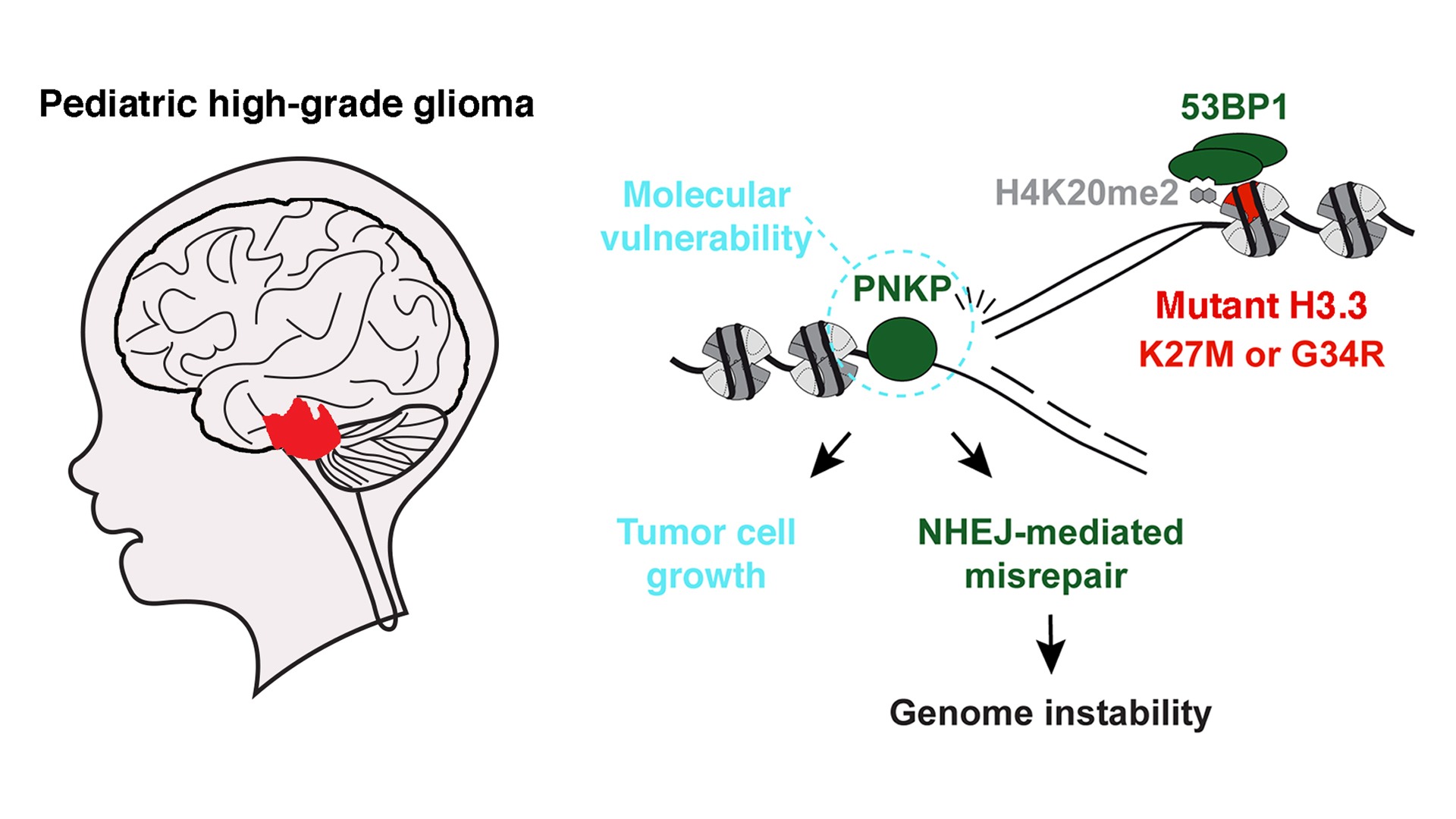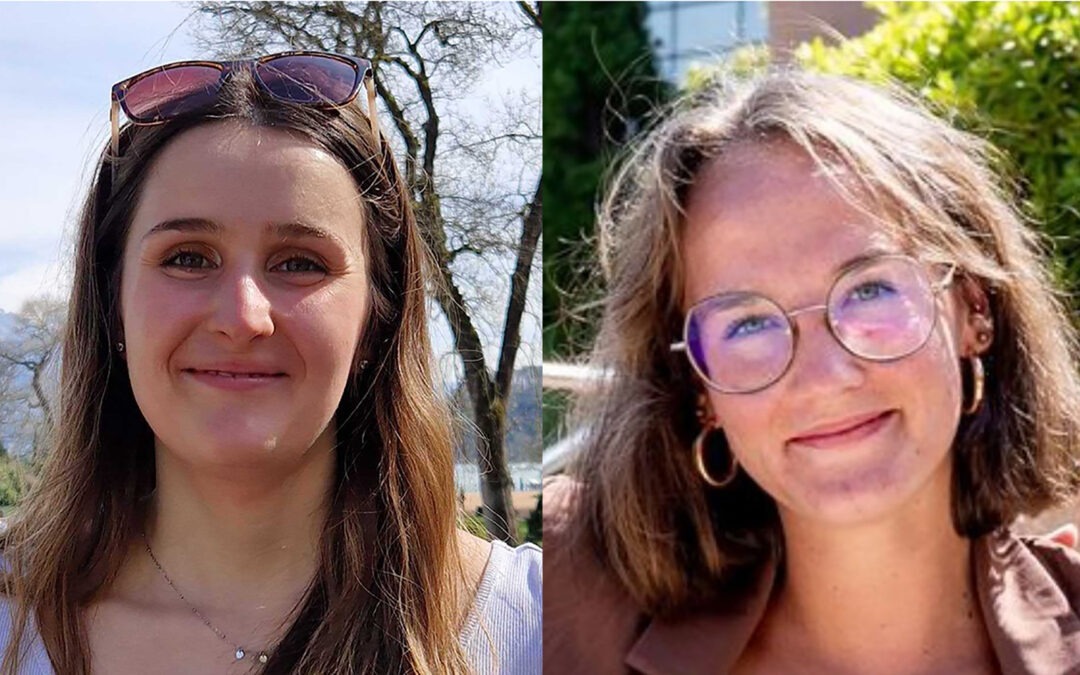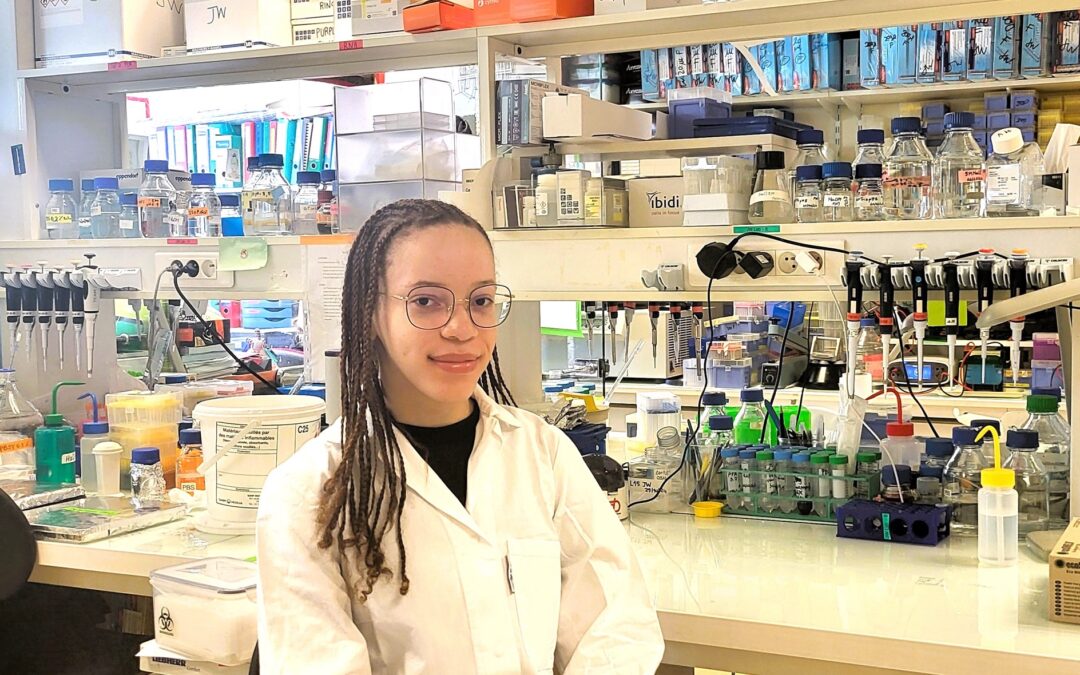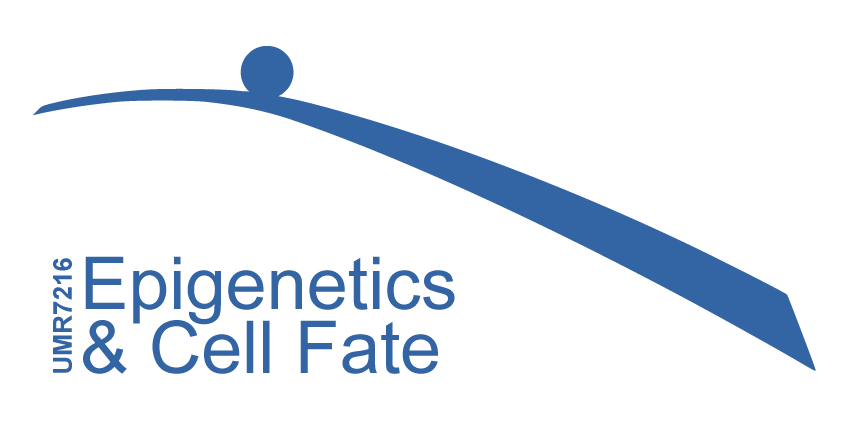January 12th 2024: We have uncovered an altered DNA repair activity in H3.3 mutant pediatric high-grade glioma that fosters genome instability independently of previously described oncogenic pathways. Furthermore, we have identified a DNA repair enzyme that sustains the proliferation of cells bearing H3.3 mutations, thus conferring a specific molecular vulnerability with potential for therapeutic targeting. We thank all our collaborators on this work for their great contributions. See Giacomini et al., Nucleic Acids Res, 2024.

À lire aussi

Congratulations to Delphine and Julia for their research funding
Congratulations to Delphine Burlet on getting a postdoctoral grant from the Fondation de France and to Julia Roche Dupuy who obtained a fellowship from the HOB doctoral school to finance her PhD thesis. Delphine Burlet, Julia Roche Dupuy À lire aussi

Welcome to Annabelle, new post-doc in the team!
Annabelle joins the lab as a post-doctoral fellow. She completed her PhD at the University of Oxford under the supervision of Prof. Monika Gullerova. Her doctoral work focused on the role of small non-coding Y RNAs and the RNA-binding protein, YBX1, in intracellular...

Welcome to Orlane
Today, we welcome a new member to the team: Orlane. She's a student from the first year of the Brevet de Technicien Supérieur Biotechnologies en Recherche et Production (Two-year technical degree - Biotechnologies in Research and Production).Orlane will be working...

4th year PhD fellowships for Anaëlle
Congratulations to Anaëlle Azogui for obtaining a 4th year PhD fellowships from the "Fondation pour la recherche sur le cancer" (Fondation ARC). Read more
